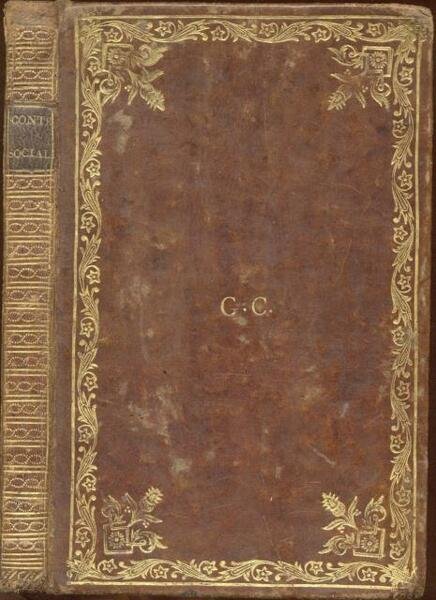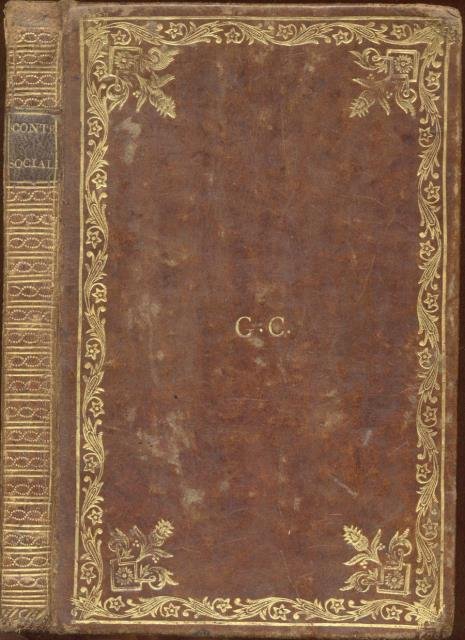Details
Author
Rousseau Jean Jacques.
Publishers
Dalla Stamperia Francese, e Italiana
Keyword
TESTI ANTICHI E RARI, TESTI ANTICHI. XV° - XVIII° secolo, EDITORIA
State of preservation
Good
Description
Cm.19,6x12,5. Pg.231, (1). Buona legatura coeva in piena pelle con titoli e fregi in oro al dorso. Ricca bordura in oro a motivi fitomorfi ai piatti, con iniziali di antico possessore (G.C.) impresse sempre in oro agli specchi. Tagli in oro e fogli di guardia marmorizzati. Alcune pagine leggermente brunite in maniera uniforme, ma assai gradevole volumetto. Prima edizione stampata in Italia per le cure dal genovese Celestino Massucco, seconda traduzione italiana dopo quella parigina del Menini del 1796, dell'opera del filosofo ginevrino (1712-1778), pubblicata nel 1762, e a ragione considerata uno dei capisaldi della cultura contemporanea europea. A questa seguirono, nel solo 1797, altre sei edizioni, a conferma del rapido diffondersi in Italia dei principi della Rivoluzione francese, e dunque di quelli illuministici. "The Social Contract begins with the sensational opening sentence: “Man is born free, and everywhere he is in chains,” and proceeds to argue that people need not be in chains. If a civil society, or state, could be based on a genuine social contract, as opposed to the fraudulent social contract depicted in the Discourse on the Origin of Inequality, people would receive in exchange for their independence a better kind of freedom, namely true political, or republican, liberty. Such liberty is to be found in obedience to a self-imposed law. Rousseau’s definition of political liberty raises an obvious problem. For while it can be readily agreed that individuals are free if they obey only rules they prescribe for themselves, this is so because each individual is a person with a single will. A society, by contrast, is a set of persons with a set of individual wills, and conflict between separate wills is a fact of universal experience. Rousseau’s response to the problem is to define civil society as an artificial person united by a general will, or volonté générale. The social contract that brings society into being is a pledge, and the society remains in being as a pledged group. Rousseau’s republic is a creation of the general will—of a will that never falters in each and every member to further the public, common, or national interest—even though it may conflict at times with personal interest" (dal sito Britannica). > Schiff, "Éditions et traductions italiennes des oeuvres de Jean-Jacques Rousseau", 37. The Princeton University Library Chronicle", LXI, 105. Goldsmiths-Kress, 41. Codice libreria 162347.


Find out how to use
Find out how to use
